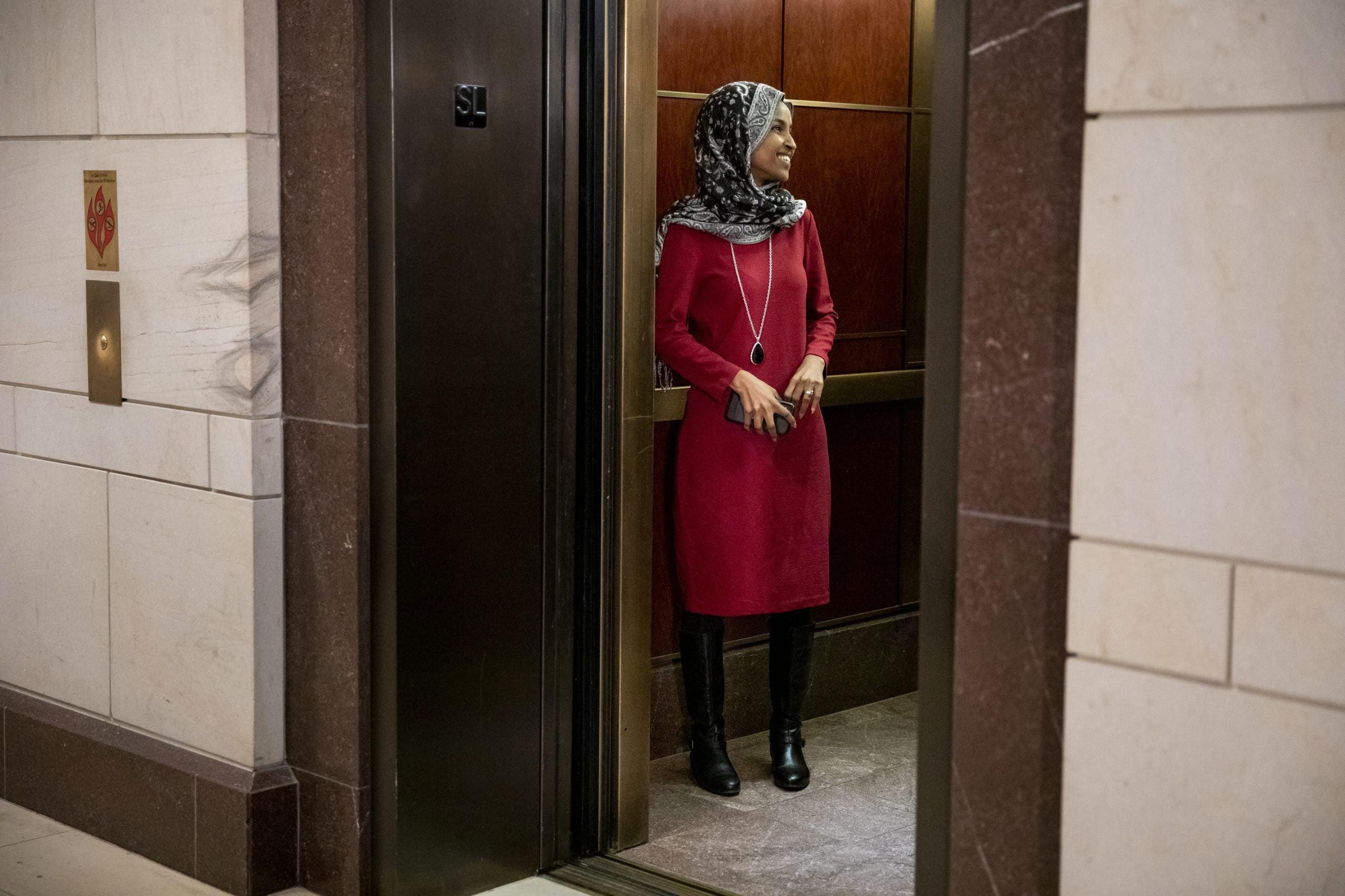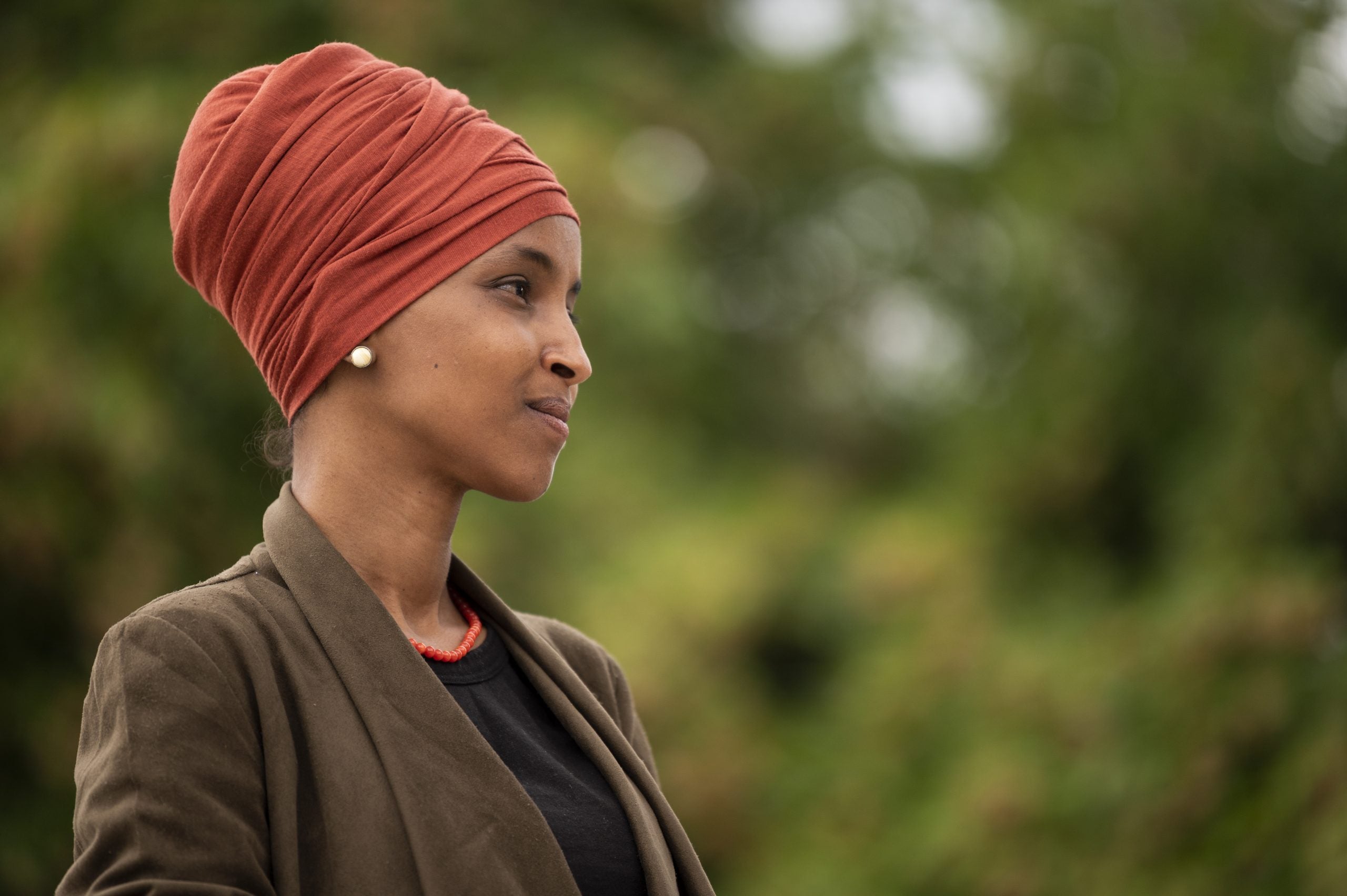Most parents want birth to be a time of joy, peace, and comfort. But for far too many Black women, it’s a time of fear. In the United States, Black women die in childbirth at a rate three to four times higher than white women, a horrifying statistic that remains consistent among demarcations of class, income, and education — social markers which so many Black people have been told will shield us from racial bias. But for Black women giving birth, racial bias is prevalent and sometimes fatal.
This is a reality that Rep. Ilhan Omar (D-Minn.) has been fighting to change throughout her time in Congress. Much of that advocacy has been through championing Medicare For All, a single-payer healthcare system that guarantees free and quality care for everyone.
“We know almost 50% of Black Minnesotans are either uninsured or underinsured. Medicare For All recognizes healthcare as a human right,” Omar tells ESSENCE.
However, Omar is more than aware that access to healthcare alone will not fix the Black maternal mortality crisis. Racial bias, after all, is present even for Black people who have access to excellent healthcare. She tells ESSENCE that her sister is a nurse and a public health professional now living in Kenya, and she has spoken to her multiple times about the global rate of Black maternal mortality and how inextricable racial oppression was from these statistics.
That’s why so much of her efforts go beyond health insurance — crucial as it is — to get to the root of the issue.
“Our healthcare system has long been fraught with racial discrimination and that leads to the kind of biases and distrust that interferes with care. It’s been a priority of mine to try to figure out where the challenges are for Black women when it comes to our healthcare system,” she says.
When she got to Congress in 2018, Omar co-founded the Black Maternal Mortality Caucus and Emergency Task Force along with other members of the Congressional Black Caucus. As the only immigrant on the taskforce, Omar tries to incorporate those culturally specific concerns around language, religion, and other things that are crucial.
“It’s been an opportunity for us to not only focus on ways we can legislate for better outcomes, but also ways we can increase advocacy for Black women in the healthcare system, and to elevate this concern so that it feeds into the public consciousness,” Omar says.

Rep. Ayanna Pressley (D-Mass.) is another one of the co-founders of the Black Maternal Mortality Caucus. Omar says she often finds herself guided by Pressley’s insight.
“Ayanna often says, ‘Those who are closest to the pain should be closest to the solution.’ It’s been really helpful for us to put those voices in the forefront.”
Dr. Rachel Hardeman, an associate professor and the Blue Cross endowed professor of Health and Racial Equity at the University of Minnesota School of Public Health, has worked and spoken with Omar on this issue and is excited about the possibilities of the proposed legislation like the Black Maternal Momnibus Act of 2020 — sponsored by Rep. Lauren Underwood (D-Ill.) — and supporting freestanding birth centers in Minneapolis.
“I’ve been really grateful for Congresswoman Omar’s leadership in that space, convening community, school, and public health leaders across her congressional district and the state to start intervening on these persistent inequities,” Hardeman tells ESSENCE.
Part of that includes making sure that women have access to midwives and doulas, birthworkers who have been shown to improve outcomes for Black women in childbirth. But even those resources, Omar says, need to be culturally competent.
In her memoir, “This Is What America Looks Like,” Omar talks extensively about her experiences with motherhood, all the joy, and all the challenges. One of those challenges was while she was pregnant with her first child, her 17-year-old daughter Isra, she was consumed with questions about pregnancy and birth.
“I bought 500 books,” Omar laughs. “I was just all over the place.”
Her sister was taking nursing classes at the time and asked a classmate — a white woman doula — to provide support to Omar during the birth.
“It was great, we connected on a personal level. But there were a lot of cultural differences between how my family talked to me about birth and what they expected my birthing room and experience would look like, and what she imagined would make me feel comfortable,” Omar explains.
On the day she gave birth, Omar says the room was flooded with family — aunties, uncles, cousins, siblings, and her father.
“My doula and I practiced all of these calming things, so she’s telling me to breathe. And my two aunts are like reciting surahs, prayers, to me. And those prayers just kept getting louder. My doula kept telling them to be quiet and I kept telling them to keep going because the prayers were actually the thing that was keeping me calm,” Omar explains, showing how cultural differences are crucial to recognize and be aware of. “In the part of the world where I come from, birth is considered the closest you are to death because it’s very challenging for women to give birth in many circumstances. So people really need prayer. It’s calming, it helps keep you grounded.”
Omar says she often shares her own birthing experience, which was ultimately positive and easy, to show that “you can have all of these trainings and do all of these best practices. But if you’re not flexible and open… if there is no access to getting a doula that is culturally competent for that patient, access to a doula might not be the thing that is the most helpful.”
The Black maternal mortality crisis, Omar stresses, goes back so far and deep. Legislation is a key way of solving the issue, but we need a cultural reckoning regarding how we see and treat Black women.
“We as Black women are told to be strong from the day of our birth. We’ve seen case after case in which women are going in and expressing their pain, but it’s not being addressed by healthcare professionals in the same ways that it would be addressed for other women,” she tells ESSENCE. “Ultimately, we want to ensure Black women and infants have rights. That they have access to resources, not just survive, but thrive before, during, and after childbirth.”
